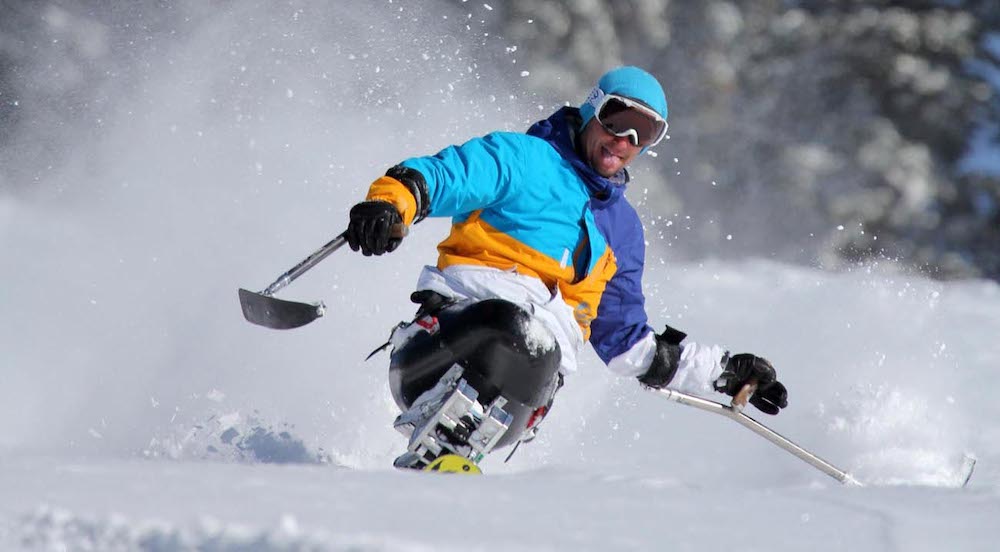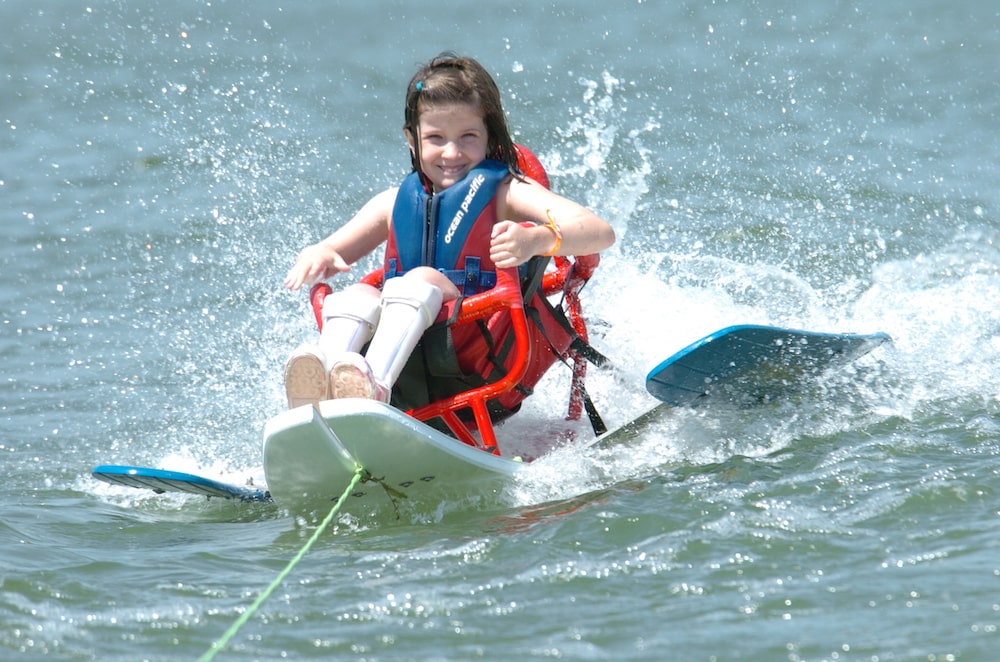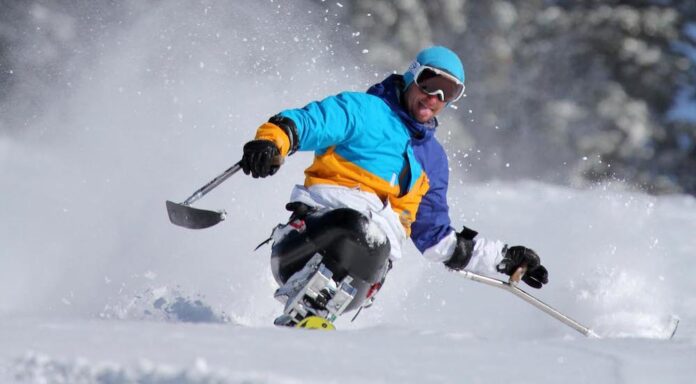Adaptive Adventures provides progressive outdoor sports opportunities to improve the quality of life for individuals with physical disabilities and their families. Founder Matt Feeney knows firsthand how impactful adaptive recreation can be for persons with impairments. An avid mountain biker and skier, Feeney says that sports have always been part of his life ─ traditionally as a youth and, now, adaptively as an adult. In 1988, at the age of 25, Feeney sustained a spinal cord injury following a cliff diving accident while vacationing, which caused paralysis from the waist down. “My first thoughts were not about whether I could have a career or a family; my first thoughts were about whether I would be able to participant in sports. Without the use of my legs, how would I be able to ski or do all of these things that I liked doing?” he recalls pondering.
Soon after, Feeney left his financial job in Denver and moved northwest to Winter Park, Colorado to pursue adaptive ski racing. “The most difficult thing that I’ve ever done in my life is relearn how to ski as a paraplegic in what’s called a monoski,” he declares. A monoski has a mounted seat attached to a single ski and shock absorber frame and is steered by outrigger poles. “Monoskiinggave me freedom! Once I was able to do it independently, it opened up a whole new world,” Feeney explains. He competed with the Winter Park Disabled Ski Team and, later, launched a career as an adaptive sports enthusiast as a ski instructor for the National Sports Center for the Disabled. “I was re-taught by able-bodied people but it made sense that I could teach adaptive skiing more effectively in a seated position by relating to the participants a little better because we faced the same challenges,” he says.
“Monoskiing gave me freedom! Once I was able to do it independently, it opened up a whole new world.” – Matt Feeney
He loved the sport so much and wanted to share it so, in1999, he established Adaptive Adventures, a nonprofit aimed to empower individuals with physical disabilities through the freedom of mobility and sports to, ultimately, build confidence and gain inspiration to accomplish their life goals. “Part of the philosophy of Adaptive Adventures is the socialization ─ bringing people together from all over the country that enjoy outdoor sports and share their stories,” he says, adding: “When I am out of my wheelchair and in my monoski, I can go anywhere on the mountain. And it’s the same with scuba diving or other sports; once I get my gear on, it’s freedom… total freedom. It’s very liberating and I want to give that to others.”

Adaptive Adventures began hosting occasional ski camps and, today, has grown to serve approximately 2,000 participants through 200 events with skiing, snowboarding, climbing, cycling, dragon boat racing, kayaking, paddle boarding, rafting, sailing, water skiing and wakeboarding. “Now, because of the demand, we started adding weekly events in Denver,” says Feeney. Participants of all abilities are welcome and provided opportunities to progress, if desired, at their own pace. For example, one might start with a spin class, then join a weekly handcycle ride (by themselves, with a guide or in a group) and, eventually, partake in a 400-mile weeklong bike tour through the mountains.

Weekly programs are focused in Denver, Colorado and the Greater Chicago area, however the organization works with partners to make adaptive recreation accessible nationwide. “The great thing about Adaptive Adventures is that we’re a very mobile program and have a plethora of trailers full of adaptive gear to help others host events throughout the country.” Funding for Adaptive Adventures comes from three organizational fundraisers, corporate sponsors, grants and individual giving. To learn more or to donate, visitAdaptiveAdventures.org.






